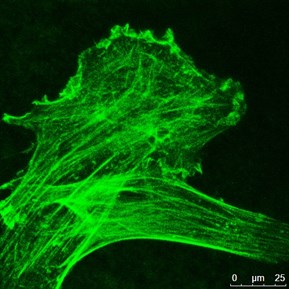An injectable bandage developed by researchers at Texas A&M University can help promote blood clotting and healing in potentially fatal penetrating wounds.
April 11, 2018

A team from the Inspired Nanomaterials and Tissue Engineering Laboratory at Texas A&M University have developed an injectable, hydrogel bandage that can stop the bleeding from deep injuries, such as those suffered by soldiers on the battlefield, and promote faster healing. The researchers found that the hydrogels reduce the clotting time from five to six minutes to about two minutes, which can be the difference between life and death.
The results of their research have been published in a paper in the journal Acta Biomaterialia.
Using a gelling agent commonly used in preparing pastries, the researchers created injectable hydrogels that can promote hemostasis— the process that stops bleeding—and also help heal a wound by the controlled release of therapeutics.
|
An injectable bandage developed by researchers at Texas A&M University can help promote blood clotting and healing in penetrating wounds that can be fatal if blood loss is not stymied. (image source: Texas A&M University) |
“Given the high mortality rates due to hemorrhage, there is an unmet need to quickly self-administer materials that prevent fatality due to excessive blood loss,” Akhilesh Gaharwar, assistant professor in the Department of Biomedical Engineering at Texas A&M University, told Design News. “While progress has been made in the development of hemostasis over the last decade, the performance of existing materials in healing internal wounds is not satisfactory.”
The hydrogels that Gaharwar and his team designed consist of bioactive nanosilicates and a natural polysaccharide known as kappa carrageenan. “Nanosilicates are disc-shaped nanoparticles made from minerals such as magnesium, silicate, sodium, and lithium, while kappa carrageenan is a well-known thickening agent used in food industry and cooking,” Gaharwar explained.
Once injected, the hydrogels, which are shear-thinning gels, flow like a liquid into a wound, Gaharwar said. As soon as the force is removed—that is, the pressure of the injection is complete—the gels solidify inside the human body.
“Once injected inside the body, the gel will come in contact with blood,” Gaharwar said. “Components present in blood such as plasma protein and platelets will get attracted to the hydrogel surface. Once they attach to hydrogel surface, platelets get activated and will initiate the clotting process with help from plasma protein.”
Developing new techniques for wound management is an emerging field focused on improving the efficiency of the healing process by speeding it up, Gaharwar said. While current approaches rely on the body’s own healing ability, Gaharwar explained the use of biologics – such as protein and growth factors – can significantly boost body’s ability to heal wounds faster.
However, those biologics must be released slowly so the body has time to respond appropriately to it, something Gaharwar and his team achieved in their injectable bandage.. “This process of slow-releasing biologics can boost a body’s natural healing ability,” he said. This product is designed for extreme conditions, specifically for internal injury, but it can be used for topical application via spraying by tweaking the chemistry of the gel.”
Gaharwar said the injectable bandage has a couple of key advantages for widespread use not only in the battlefield but also in other situations where wounds need rapid healing, such as after surgery. One advantages is cost, as raw materials used for the fabrication of the hydrogels are inexpensive and easily obtained. “To make 1 milliliter of injectable bandage it might cost $1,” Gaharwar said. “If we prepare in bulk then total cost will be quite low – 10 cents per milliliter.”
Another aspect of the hydrogels that make them suited for various applications is that they can be stored at room temperature and for a long duration, he added.“There is no need for cold-chain storage, so it can be used in remote locations and extreme conditions such as battlefield.”
Gaharwar and his research team are planning to engage in pre-clinical trials of the injectable bandage before proceeding to clinical use on human patients.
Elizabeth Montalbano is a freelance writer who has written about technology and culture for 20 years. She has lived and worked as a professional journalist in Phoenix, San Francisco and New York City. In her free time she enjoys surfing, traveling, music, yoga and cooking. She currently resides in a village on the southwest coast of Portugal.
Use the Code DESIGNNEWS to save 20% when you register today!
|
About the Author(s)
You May Also Like





